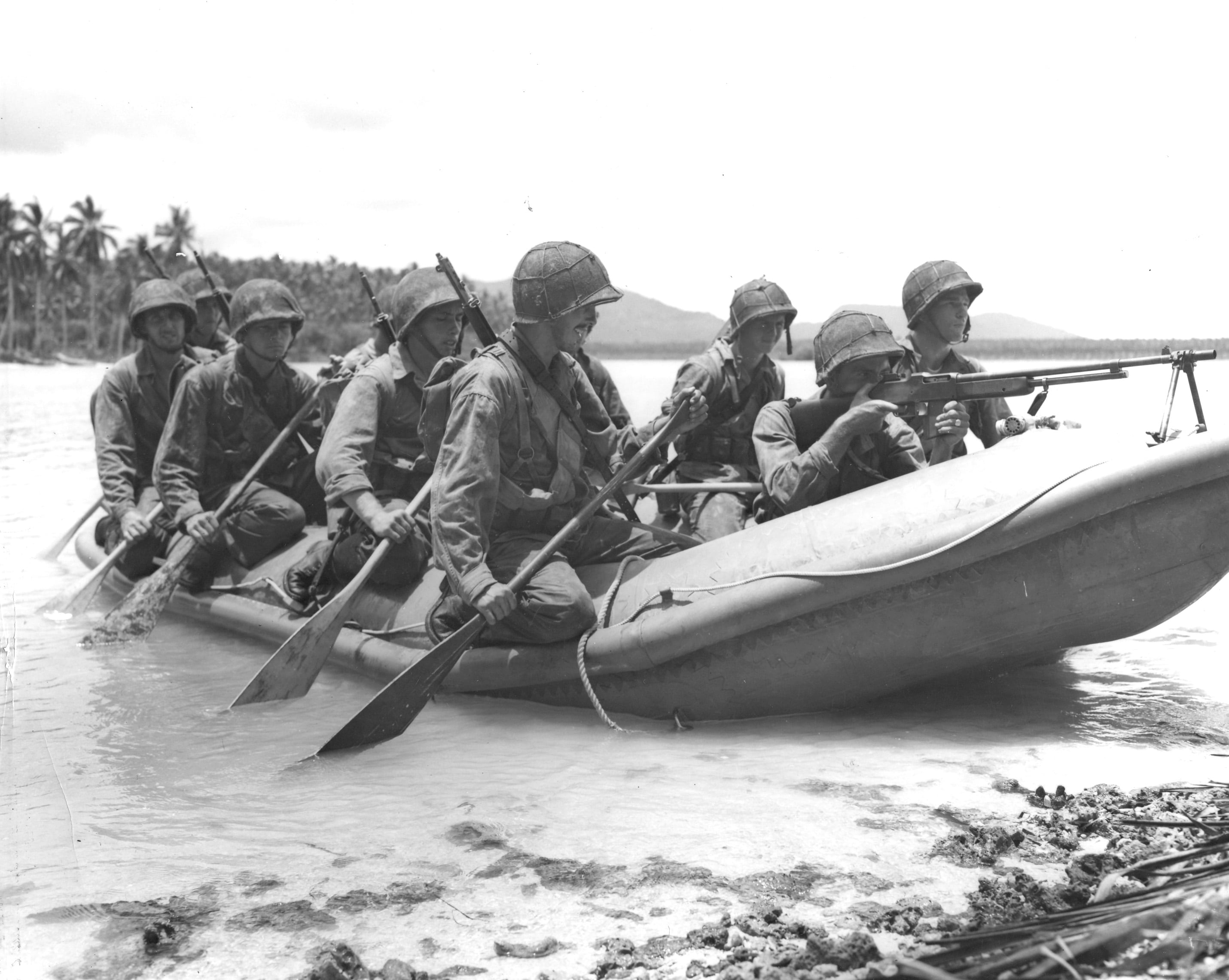At long last, the Raiders will be reborn.
An official reflagging ceremony to rename Marine special operations battalions in honor of their World War II predecessors is set to take place June 19, MARSOC officials confirmed. The ceremony comes 10 ten months after the command first announced its plan to change the names of Marine Corps Forces Special Operations Command MARSOC's component units to reflect their history.
The formal renaming was held up while Headquarters Marine Corps approved a bulletin announcing the upcoming change, said according to Capt. Barry Morris, a MARSOC spokesman. He said MARSOC's headquarters in Sneads Ferry, North Carolina, also had to coordinate with its major subordinate elements to determine a date for the ceremony.
Army Gen. Joseph Votel, the head commander of U.S. Special Operations Command, is expected to attend the event reflagging at MARSOC headquarters. Also present will be members of the original World War II Raider companies.
During the ceremony, MARSOC's eight major subordinate elements and tenant battalions will be briefly deactivated, and then re-activated with their new names. The following units are part of the change:
- Marine Special Operations Regiment becomes Marine Raider Regiment.
- 1st Marine Special Operations Battalion becomes 1st Marine Raider Battalion.
- 2nd Marine Special Operations Battalion becomes 2nd Marine Raider Battalion.
- 3rd Marine Special Operations Battalion becomes 3rd Marine Raider Battalion.
- Marine Special Operations Support Group becomes Marine Raider Support Group.
- 1st Marine Special Operations Support Battalion becomes 1st Marine Raider Support Battalion.
- 2nd Marine Special Operations Support Battalion becomes 2nd Marine Raider Support Battalion.
- 3rd Marine Special Operations Support Battalion becomes 3rd Marine Raider Support Battalion.
The cost of the name change will be roughly $12,000, Morris said, including the new unit flags and identification placards for corresponding headquarters buildings. These new flags will not feature the iconic skull on a red field that was part of the original Raiders logo, Morris said. But they will continue to display the "Southern Cross" of five white stars on a blue background that was part of the Raider patch and the current MARSOC unit insignias.
To save money, MARSOC has held off on printing advertising products including billboards, newspaper ads and promotional pamphlets while the name change was finalized, he said.
Morris said officials will update all eight units' web pages by June 22 to reflect the change. Within the command, he said the name change will be communicated primarily within units.
"MARSOC has been informing all Marines, sailors and civilians within the command of the re-flagging at the small-unit level," he said in an emailed statement. "Since the announcement last August, leaders at all echelons within the command are leading small discussion groups and meeting face-to-face with their personnel, informing them of the upcoming re-flagging and answering any questions that anyone may have."
MARSOC's much-awaited name change comes following years of controversy and dispute. MARSOC operators and enablers have long identified informally with the legendary Raiders, who participated in high-stakes amphibious raids in the Pacific and are considered the first U.S. special operations troops to fight in World War II.

MARSOC units will be renamed in June for the Marine Raiders, who fought in World War II.
Photo Credit: Marine Corps
But a proposal to change MARSOC's name to reflect its history was rejected by Gen. James Amos, then the commandant, in 2011. At the time, he argued that "your loyalty … is to the Marine Corps, based on the title you have on your uniform," according to a general who was present when he announced the decision.
Nonetheless, troops in the MARSOC community and members of the Marine Raider association, which preserves the group's Raiders' legacy, continued to push for the change. Marine Corps Times reported in 2012 that MARSOC troops had been spotted downrange in Afghanistan wearing the famous skull patch, even though it was not officially authorized.
Amos reversed his decision self and announced the name change last August, a few months before his retirement.
"United States Marine Corps Forces Special Operations Command is proud and honored to adopt the name Marine Raider, carrying on the rich heritage and legacy passed along to us by the Raiders of World War II," MARSOC's commander, Maj. Gen. Joseph Osterman, said in a statement.
MARSOC now has more than 2,700 Marines, including nearly 1,000 critical skills operators. The three soon-to-be-named Raider battalions receive region-specific training for deployments to Africa, the Asia-Pacific region and the Middle East.





